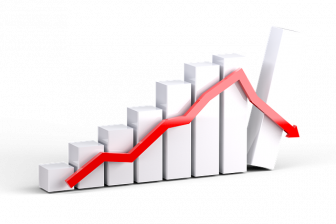 The average asking house price dropped in June for the first time this year according to Rightmove, albeit by just £82.
The average asking house price dropped in June for the first time this year according to Rightmove, albeit by just £82.
It comes as homeowners and would-be buyers continue to be affected by mortgage rate increases.
The small move – the first drop in June since 2017 – took the average UK house price to £372,812. In May, the average house price increased by 1.8%, according to Rightmove’s index.
Over the past year house price growth slowed to 1.1%, and Rightmove is predicting a 2% fall in asking prices by the end of 2023.
House price movements varied considerably across different parts of the country.
Regionally the North East saw the biggest asking price growth in June with the average property value rising 4.9% to £188,414.
In contrast London saw prices drop by 1.6%, taking the average asking price to £685,241.
Industry reactions:
Tom Bill, head of UK residential research at Knight Frank, said: “Recent rate volatility hasn’t yet had a material impact on housing market activity because, if anything, those holding mortgage offers are keen to move sooner rather than later. That said, sentiment has taken a hit in recent weeks, which will keep a lid on trading volumes later this year. Ironically, strong wage inflation rather than the mini-Budget is now the main brake on the housing market although the outlook will only become clearer this week. Those buying, selling or re-mortgaging will hope the Bank of England isn’t faced with a second ugly underlying inflation reading on Wednesday.”
Jean Jameson, chief sales officer at Foxtons, said: “The market is busier than expected and the volume of sales across London is in line with what we saw last year, despite the rise in interest rates. Foxtons’ housing stock has significantly increased year-on-year and we’ve not seen a significant increase in stressed sellers in the residential market as a result of the interest rates rise. Since the mini-budget, sellers have had to be slightly more competitive with their pricing in order to stimulate interest in their property.”
Jeremy Leaf, north London estate agent and a former RICS residential chairman, said: “As expected, recent mortgage market turbulence is dampening the increase in prices and activity which we would usually see at this time of year.
“However, these are, of course, only aspirational not achieved values. On the street, prices are softening as cash and equity-rich buyers in particular continue to hold sway over those relying on increasingly hard-to-obtain loans.
“Negative publicity is helping lower expectations and encourage more seller realism.”
Emma Cox, MD of Real Estate at Shawbrook, commented: “The housing market continues to face challenges with confidence amongst buyers impacting prices. The combination of high interest rates and inflation continues to be a heady mix, prompting buyers to remain hesitant. However, professional investors and landlords may find this an optimal time to add to their property portfolio, making the most of deals within the market. Despite all of these headwinds for landlords, demand for letting residential property remains high with tenants competing for limited stock.”
Adam Feather, head of Robert Anthony Estate Agents, said: “The impact of higher interest rates are starting to show in the house price data. We think prices will fall, but only marginally in the short-term, due to a drop in the number of people buying and sellingtability in the mortgage sector and signs that the economy is improving helps generate more transactions.
“Once again, properties are only selling at the right price, with overpriced stock ignored by buyers, and that is why it is important that vendors allow agents to price realistically, ensuring that new instructions get sold.”
Tomer Aboody, director of property lender MT Finance, commented: “While it seemed a few weeks ago that we might be nearing the ceiling of rates rises, this past month and sentiments have shown that there’s still a way to go.
“The uncertainties, along with rates rises, have inevitably resulted in an insecure situation, with buyers not desperate to pull the trigger since they’re not sure what will happen with mortgage rates and whether they will meet affordability criteria once they come to take out a deal.
“Is it now time to get used to a ‘new world’ of interest rates trending at around 5 to 7 per cent, with buyers expecting and accepting these levels and making the numbers work for their situation, as well as being realistic as to what they can afford?”
Early summer slowdown for UK housing market amid surging mortgage rates


Comments are closed.